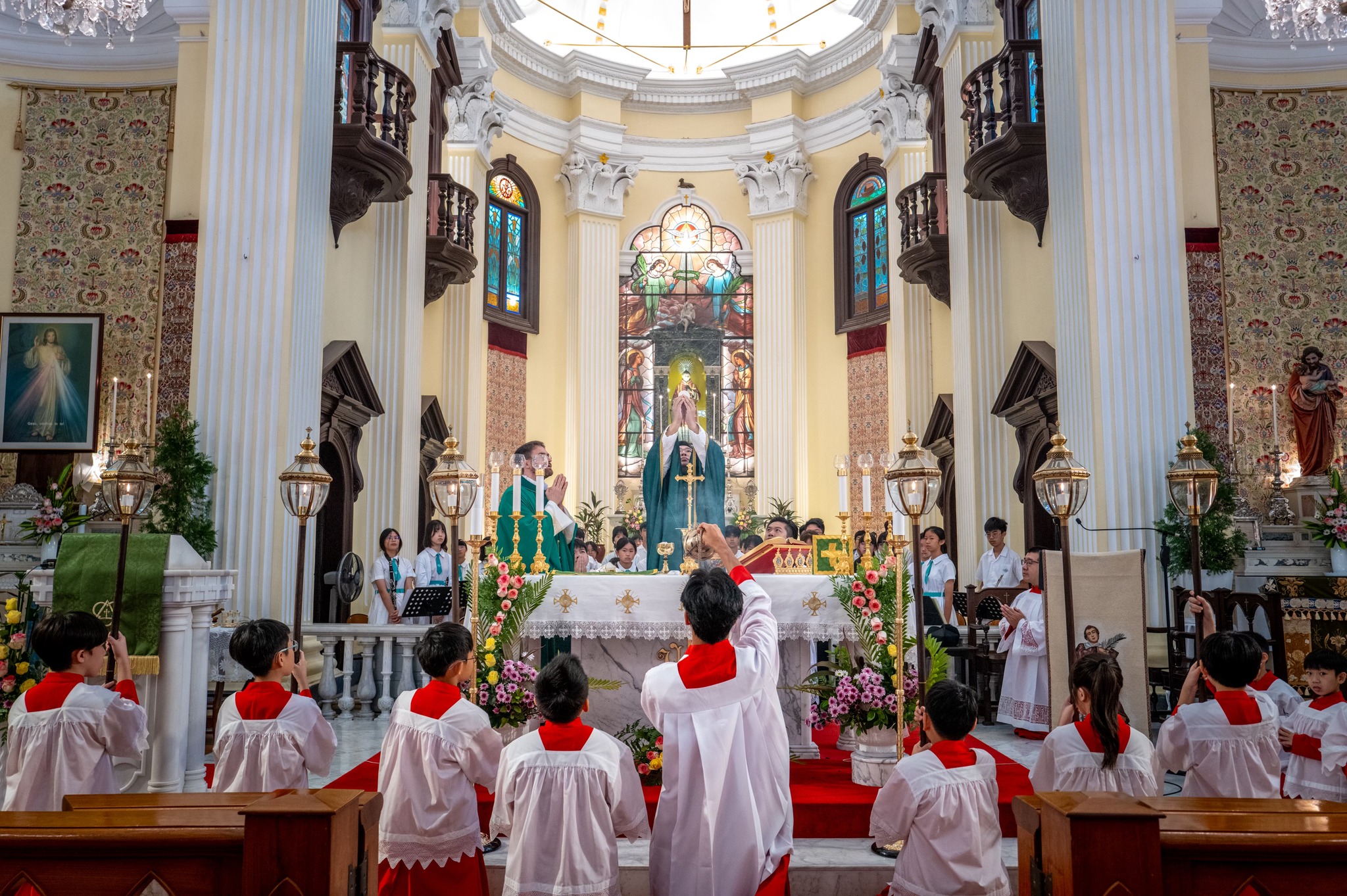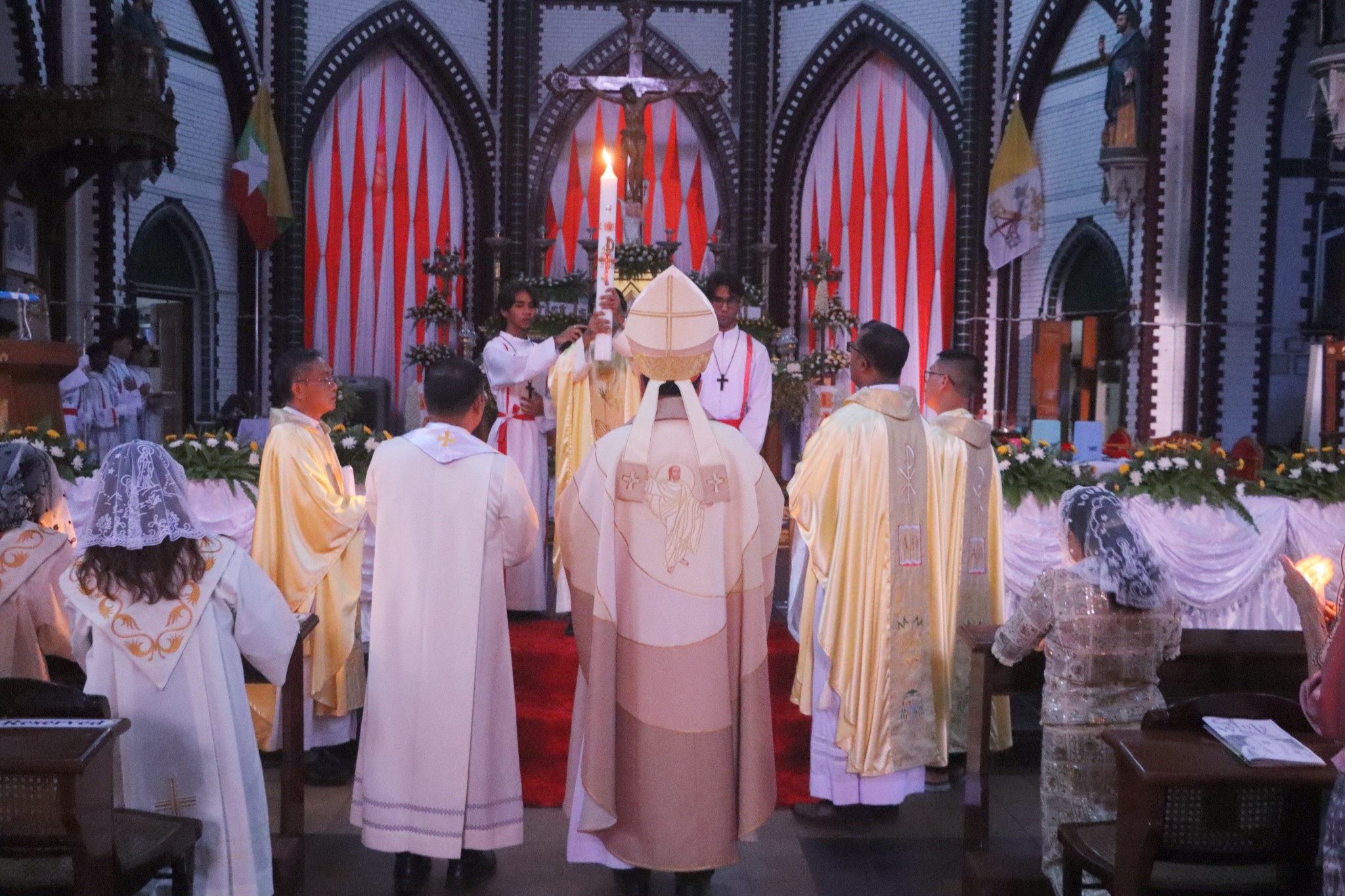– Fausto Gomez OP
Some weeks ago, I read a review of a novel authored by Nuria Gago entitled Quiéreme siempre (Love me always). The protagonists are two women – one is a young nurse, and the other, an old woman, who becomes sick with Alzheimer.
The novel is partly historical: about Nuria’s grandmother, who had taken good care of her after her mother died when she was eleven. Only after her grandmother passed away, the novel writer learned of “the great potential of music to evoke the past that helps the sick person with Alzheimer to come back.”
Nuria Gago adds: I would have loved to have this information then so that I could have helped my grandmother listen to the songs of her time. How wonderful! She would have come back, perhaps, recovering her memories while listening to the songs, singers and music she loved through life. At the end of the novel, which presents also the often harsh way society and people treat the elderly, the writer leaves a blank page, and invites the readers to jot down their favorite music and songs. Just in case – she adds – “you might need them, if you lose your memory.”
Many old persons today are well cared for by their families and significant others. Many others, however, are often treated as objects, part of our current throw away culture: senior men and women parked in some poor nursing homes, or abandoned, or marginalized, or even “exposed to covert euthanasia” (Pope Francis). It is good, therefore, to look for ways to help them and others in similar situations face aging and sickness, particularly grave disability. Recovering memories may be a good way to help the gravely sick attain certain serenity and peace. Indeed, music may soothe nerves, put some hope over negative thoughts, and brighten dark days.
Do you know the favorite songs of your mother or grandmother, or friend? One close friend since my youth asked me some months ago to tell him the titles of my favorite music. I wish to share here with my co-pilgrims the answer I gave to my dear friend.
It is often said: Tell us the books you read, or your preferred quotes, or your favorite music and songs. Tell us, and we shall know who you are in some way – and your age!
At times, I listen to my preferred music, and hear the songs I love. The song or the singer? I remember Giovannino Guareschi’s many wonderful short stories with two protagonists: a priest (Don Camillo) of a small Italian town after World War II, and the communist mayor (Peppone) of the same town. Both become friends, but privately only, not publicly! For this “unorthodox” friendship, the major is rebuked by his comrades. The major defends himself and his priest friend: “I love the singer, not the song.” Well, in my case, I usually like the singer and the song – the song sung by a particular singer, or the music played by a particular artist or a given orchestra. I may love the beauty or power of a tune, the voice of a singer and/or the significance of the lyrics – at least of some moving lines or verses (I do not read spiritually or theologically the lines of a song, and I interpret it, with due respect, within my world-view).
I may go through the main stages of my life by recalling the music, the songs, the composers or singers that touched me. Some of these songs continue lingering meaningfully from my childhood, through my youth, adulthood, and old age.
A refuge for me, since I was a child until my old age is the Flamenco guitar and canto. When I was a child of about seven, on the Sundays of winter, I used to go around two bars or taverns of my town in Avila, El Oso to hear the flamenco fandangos sung marvelously by a few young farmers or shepherds. I could not enter the taberna then, but I loved to hang around outside to listen. My father and my brothers and sisters loved or love Flamenco, too. I still listen to Flamenco fandangos and bulerías interpreted by Antonio Molina, Juanito Valderrama, Niña de la Puebla, Rocío Jurado, and Camaron de la Isla, Diana Navarro, Miguel Poveda, India Martínez, etc. Above all, I listen – and not only in Holy Week – Saeta de los Gitanos: a poem by the great Antonio Machado with a moving tune composed and sung by Joan Manuel Serrat. For me, Flamenco has “soul, “duende,” continuing creative innovation: De la saeta al cantar, / no puedo cantar ni quiero / a ese Cristo del madero / sino al que anduvo en la mar… – “I cannot sing, nor do I want, to that Christ on the cross but to the one who walked on the sea…” I am deeply moved by the lyrics of the popular song to St Isidro Labrador, patron of farmers, one of the yearly great feasts of my lovely town: Danos agua, aunque no lo merezcamos, que si por merecer fuera, ni el suelo que pisamos – “Give us rain, even if we do not deserve it, because if it were a question of merit, not even the ground that we step on.”
The best version: my mother’s, of course! In my youthful days when I was a bit of a rebel, I loved the poem/song of the Comuneros de Castilla: “Castilla, Castilla, Castilla, levántate – Castille… rise up!” My childhood love for the popular songs and especially as played by the dulzaina and tambor (pipe and drums) continue today as then re-charging and soothing my soul.
Songs that linger from my youth? Lemon Tree sung by Trini Lopez: it was like my sort of “signature song” in my youth that I usually sung when in light programs I was asked to sing a song in Manila: “Don’t put your faith in love, my boy”, my father said to me, “I fear you’ll find that love is like a lovely lemon tree.” Imagine of John Lennon: Imagine all the people… Living for today…/ Living life in peace…I hope someday you will join us / and the world will be as one. Seasons in the Sun sung by Nana Mouskouri: Goodbye, my friend, it’s hard to die, when all the birds are singing in the sky. Now that the spring is on the air, and the flowers all around, little children everywhere… Goodbye Papa, please pray for me… El Tamborilero (The Drummer Boy) sung superbly in Spanish by Raphael: El camino que lleva a Belén…Cuando Dios me vio tocando ante Él, me sonrió – The road that leads to Bethlehem… When God saw me playing before him, He smiled at me. A joyful and funny Christmas Carol that I have often sung with my brother Dominicans in San Juan, Metro Manila: Pero mira cómo beben los peces en el río, pero mira cómo beben por ver a Dios nacido”- But see how the fish drink in the river; but see how they drink seeing that God is born.
Another song and its lyrics that still come up on the journey of my life is Mary Hopkin’s Those were the days, my friend… Those were the days my friend, we thought they’ll never end, we sing and dance forever and a day …, we were young and sure to have our way. When I want to pray and meditate, I listen to the beautiful and inspiring Our Father rendered by Diana Navarro. I also love to listen in the respective liturgical season to Leonard Cohen’s tune of Hallelujah with the Christmas or Easter lyrics. And I continue loving Gregorian chant!
I had the chance to learn some classical music when practicing to play the piano as a high school student in Santa María de Nieva (Segovia), and the organ as a professed student of philosophy in Avila. Unfortunately for me, later on, during my years as theology student, I could not follow it up in Washington, D. C. But the best result of my frustrated playing experience was this: I came to love classical music. And still do – and now, more: Mozart (Requiem), Beethoven (Ode to Joy, 9th symphony), Maurice Ravel (Bolero), Isaac Albeniz (Asturias), … I continue listening often to Johann Sebastian Bach, Toccata and Fugue in B minor, George Frideric Handel’s Messiah, Manuel de Falla’s Danza de Fuego, Rimsky Korsakov’s Capriccio Español, and – the most often – Joaquin Rodrigo’s Concierto de Aranjuez with Paco Lucia playing the guitar.
With Concierto de Aranjuez, I also listen often to The Sound of Silence sung magnificently by Simon and Garfunkel: People talking without speaking, people hearing without listening, people writing songs that voices never shared… I listen often, too, to Gracias a la vida, the version by Mercedes Sosa and Joan Baez: Gracias a la vida que me ha dado tanto’ – Thanks to life that has given me so much. Indeed, everything is grace – God’s grace! A permanently favorite prayer-song is John Newton’s Amazing grace! How sweet the sound.
As a theology student in the USA, I came to love the lyrics of Desiderata (“Desired things”), which I often used – when I was young – in my talks to university students. Now I continue meditating upon it: Remember what peace may be in silence… Be in good terms with all persons… Take kindly the course of the years, gratefully surrendering the things of youth …Therefore be at peace with God… Keep peace with yourself. With all its sham, drudgery and broken dreams it is still a beautiful world. Be careful, strive to be happy.
The singer or the song? The singer and the song! I know one in whom the singer and the song are perfectly harmonized – both are one: Jesus Christ. This pilgrim’s journey of life consists in trying hard to follow him, who is his singer and his song.


 Follow
Follow


